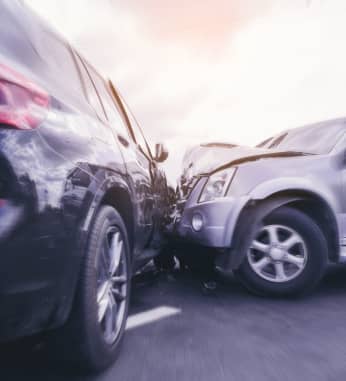In a Car Accident that is not your fault? What to do Next
Navigating the aftermath of a car accident is seldom pleasant, regardless of its severity. Dealing
with injuries, particularly when you’re not at fault, adds to the challenge. If you find yourself in
this situation, you're likely wondering how to cover expenses and what steps to take next. The
law is on your side—accident victims caused by another party should not bear the burden of the
damages they suffer.
In case you were injured in an accident caused by someone else, initiating the process for
compensation is crucial. A consultation with a nationwide car accident attorney at Local
Accident Reports can be your first step in building your case.
In the United States, recent statistics reveal 39,508 fatal car accidents, varying in rates from state
to state. These accidents stem from a multitude of causes, with driver negligence and error being
the leading factors.
Following a car accident, irrespective of fault, it's crucial to take specific steps to safeguard
yourself. Safety should be a priority, attending to injuries is essential, contacting authorities,
gathering information, and informing your insurance company is vital. Seeking immediate
medical attention is also imperative, even if you initially feel uninjured, as some injuries might
not immediately manifest.
Engaging with a car accident attorney holds significant importance, especially when interacting
with insurance adjusters. Understanding the legal landscape, regardless of fault or no-fault state,
is vital for seeking compensation to cover damages like medical bills, lost wages, property
damage, and other losses incurred during the accident.
The legal process aims to provide compensatory and, in specific instances, punitive damages for
the victim's losses. Economic damages encompass medical bills and lost earnings, while non-
economic damages cover subjective impacts like pain and suffering. Punitive damages, when
applicable, are intended to penalize the defendant for willful and wanton misconduct.
The path after a car accident can be complex and challenging. Seeking legal counsel is
instrumental in ensuring fair compensation and navigating the legal intricacies surrounding such
incidents.
Navigating the complexities following a car accident, no matter the severity, can be an
overwhelming experience, particularly when facing injuries. When you're not at fault, it further
complicates an already challenging situation. Contemplating how to manage expenses and what
steps to take next can be daunting, but the law stipulates that victims of accidents caused by
another party shouldn't bear the financial burden of the damages they've incurred.
Recent data from the United States highlights approximately 39,508 fatal car accidents in a
single year, varying significantly in rates across different states. Causes for these accidents are
diverse, with driver negligence and errors being the primary factors leading to such incidents.
Regardless of fault, taking essential steps after a car accident is pivotal. Prioritize safety, tend to
injuries, contact authorities, gather information, and inform your insurance company. Seeking
immediate medical attention, even if you initially feel uninjured, is important as certain injuries
might not immediately manifest and early treatment can prevent potential complications.
A car accident lawyer is immensely helpful, particularly when navigating insurance adjusters and
comprehending the legal landscape. Regardless of the accident's occurrence in a fault or no-fault
state, understanding these legal intricacies is essential for seeking compensation to address the
damages and outstanding expenses.
The legal process following accidents endeavors to provide compensatory and, occasionally,
punitive damages for the losses incurred by the victim. Economic damages generally pertain to
measurable financial losses, including medical expenses and lost income, while non-economic
damages encompass subjective consequences. Punitive damages, if applicable, serve to penalize
the defendant for deliberate and severe misconduct; however, they might not be available in all
cases.
The journey following a car accident can be intricate and full of obstacles, underscoring the
importance of seeking legal guidance. Experienced legal counsel not only helps ensure fair
compensation but also navigates the intricate legal proceedings and insurance negotiations after
such incidents.
